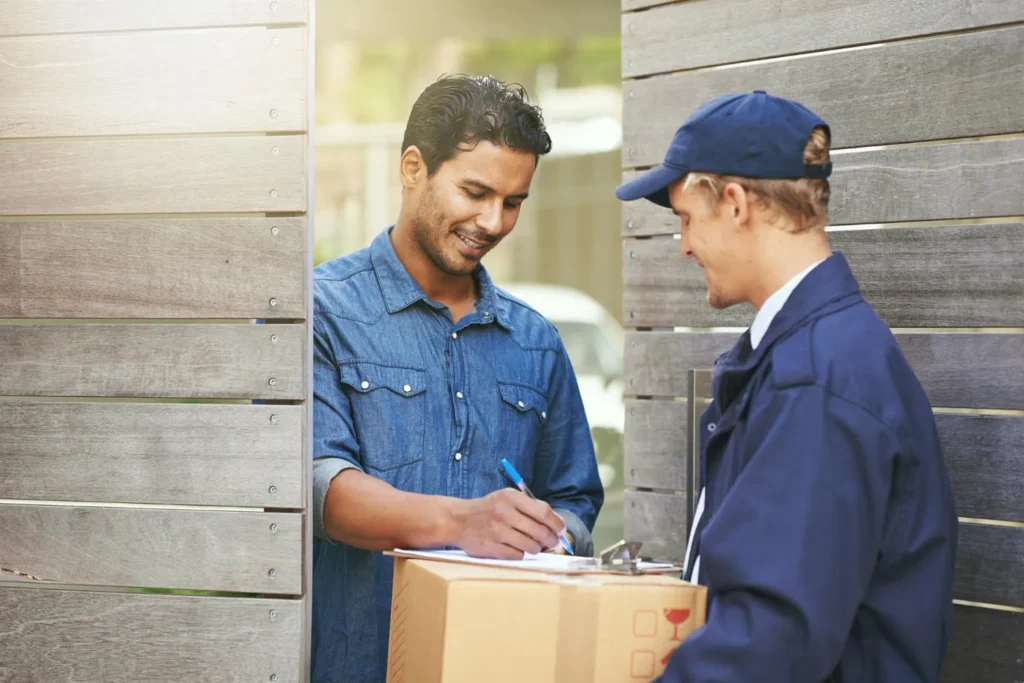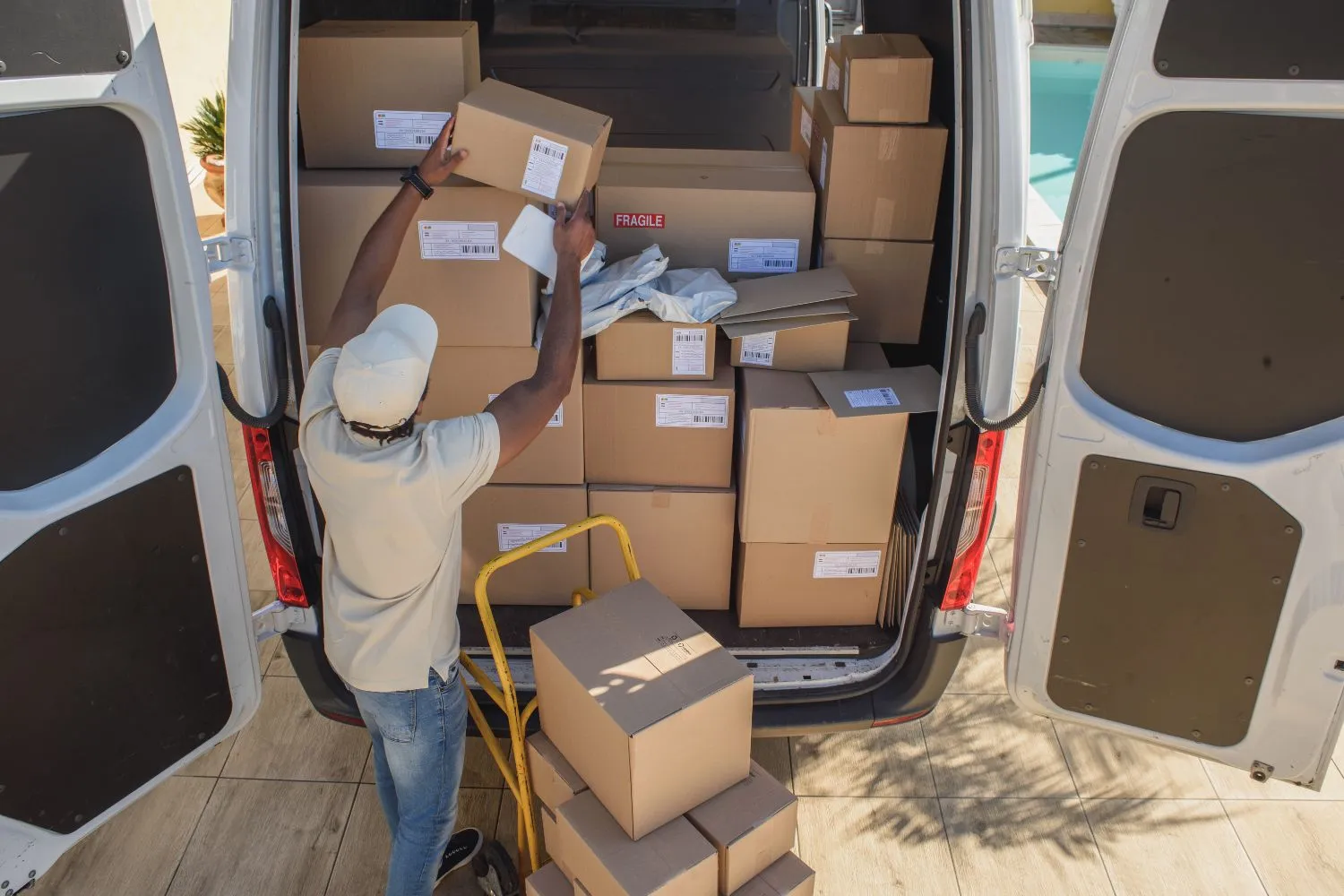In today’s fast-paced and interconnected world, delivery services for businesses have transitioned from a luxury to a necessity. Whether it’s a global enterprise or the best delivery service for a small business, the ability to dispatch products to consumers promptly and efficiently can significantly impact a company’s reputation and bottom line. In this blog, we’ll delve deep into the multifaceted role of delivery services, exploring their critical importance, inherent challenges, and the boundless opportunities they present for businesses aiming to thrive in today’s competitive landscape. From enhancing customer satisfaction to streamlining supply chains and embracing technological innovations, let’s navigate the dynamic world of delivery services together.

The Critical Importance of Delivery Services in Today’s Market
In the modern marketplace, delivery services for businesses have evolved into a critical pillar of success. They are not just facilitators of convenience but are pivotal in maintaining competitive edge and customer loyalty. For small enterprises, choosing the best delivery service for small business is particularly vital, as it significantly influences their ability to satisfy customer demands promptly and efficiently. The reliance on delivery services extends beyond logistics; it’s a strategic element that impacts market reach, brand perception, and customer engagement. In essence, effective delivery services are a lifeline for businesses aiming to thrive in a digitally dominated, customer-centric economy.
Types of Delivery Services Available
In the realm of logistics and transportation, businesses have access to a range of delivery services tailored to meet diverse needs and preferences. Let’s explore the various options available:
Same-day Delivery Options
Same-day delivery has emerged as a game-changer in the world of e-commerce and retail, offering customers the convenience of receiving their orders on the same day they are placed. This service is characterized by its rapid fulfillment and delivery within a few hours of order placement. Same-day delivery often relies on local distribution centers, courier networks, or partnerships with third-party delivery providers to ensure timely delivery. Businesses leverage same-day delivery to meet the growing demand for instant gratification among consumers, particularly for time-sensitive products or last-minute purchases.

Last-mile Delivery Solutions
Last-mile delivery focuses on the final leg of the delivery process, from the distribution center to the customer’s doorstep. This critical stage in the supply chain involves optimizing routes and delivery methods to ensure efficient and timely delivery. Last-mile delivery services leverage technology such as GPS tracking and route optimization software to streamline operations and enhance the customer experience. By providing accurate delivery updates and convenient delivery windows, last-mile delivery solutions reduce transit times and ensure customer satisfaction.
International Shipping and Logistics
International shipping and logistics entail the transportation of goods across borders and the management of complex customs procedures and regulations. This service involves freight forwarding, customs clearance, documentation, and coordination with international carriers and logistics partners. International shipping enables businesses to expand their reach to global markets, tapping into new opportunities for growth and revenue generation. However, navigating international shipping requires careful planning and expertise to ensure compliance with international trade regulations and minimize delays or disruptions.
Customized Delivery Services for Specific Industries
Some industries require specialized delivery services tailored to their unique needs and requirements. Customized delivery services may include temperature-controlled transportation for perishable goods, white-glove delivery for high-value items, or specialized packaging for fragile or oversized items. These tailored solutions ensure the safe and secure transportation of sensitive or specialized products, maintaining product integrity and customer satisfaction. By offering customized delivery services, businesses can address the specific challenges and demands of their respective industries, gaining a competitive edge in the marketplace.
Challenges Faced by Businesses
Implementing delivery services for businesses can be accompanied by various challenges that businesses must navigate to ensure success:

Cost considerations and budgeting
Cost considerations are paramount when implementing delivery services. Businesses must factor in expenses such as vehicle maintenance, fuel costs, insurance, and labor wages. Balancing these costs while maintaining competitive pricing for customers is essential for profitability.
Logistics and infrastructure limitations
Logistics and infrastructure limitations can hinder the efficiency of delivery operations. Challenges such as traffic congestion, road closures, and inadequate transportation networks can lead to delays and disruptions in delivery schedules. Businesses must invest in robust logistics systems and infrastructure to overcome these obstacles.
Regulatory and legal complexities
Navigating regulatory and legal requirements is another significant challenge in implementing delivery services. Businesses must comply with laws and regulations governing transportation, labor, safety, and environmental standards. Failure to adhere to these regulations can result in fines, legal liabilities, and reputational damage.
Managing customer expectations and delivery timelines
Meeting customer expectations and delivery timelines is crucial for maintaining customer satisfaction and loyalty. Delays or errors in delivery can lead to negative reviews, lost sales, and damaged reputation. Businesses must communicate transparently with customers, provide accurate delivery estimates, and promptly address any issues or concerns that arise during the delivery process.
Unlocking Growth Opportunities with Delivery Services
Leveraging delivery services opens up vast growth opportunities for businesses. By expanding delivery options, companies can tap into new markets and demographics, breaking geographical constraints that once limited their customer base. Furthermore, integrating innovative delivery services can enhance a brand’s appeal, making it the preferred choice for consumers who value convenience and speed. This strategic approach not only boosts immediate revenue but also builds long-term customer loyalty, setting the stage for sustained business expansion.

Leveraging Delivery Services for Supply Chain Efficiency
Integrating efficient delivery services is key to enhancing supply chain performance. By optimizing delivery operations, businesses can significantly reduce transit times and costs, enabling a smoother flow of goods from warehouses to customers. Effective coordination between warehousing, inventory management, and delivery processes minimizes delays and maximizes resource utilization. This streamlined approach not only improves operational efficiency but also strengthens the resilience of the supply chain against disruptions, ensuring that businesses can maintain consistent service levels even in challenging market conditions.
The Role of Technology in Transforming Delivery Services
Technology is revolutionizing delivery services for businesses, propelling both efficiency and customer satisfaction to new heights. Innovations such as real-time tracking, route optimization algorithms, and data analytics empower even the best delivery service for small business to compete on a global scale. These advancements facilitate seamless communication between businesses and customers, ensuring transparency and reliability. Furthermore, the integration of artificial intelligence in managing logistics operations allows for predictive delivery scheduling, reducing waiting times and optimizing delivery routes. This technological evolution is not just reshaping how businesses manage deliveries but also redefining customer expectations in the digital age.
Selecting the Best Delivery Service for Your Small Business
Choosing the best delivery service for your small business involves assessing several key factors. Firstly, consider the geographical coverage needed to reach your customer base effectively. Then, evaluate the service’s scalability, to ensure it can accommodate your business’s growth. Pricing transparency and reliability are also crucial; compare costs and read customer reviews to gauge service quality. Lastly, assess the technological integration offered, such as real-time tracking capabilities, which can enhance customer satisfaction. By meticulously weighing these aspects, small businesses can identify a delivery partner that aligns with their operational needs and customer service standards.

Future Trends in Delivery Services
The future of delivery services for businesses is poised for transformative growth, with sustainability and technology leading the charge. Green logistics, including electric vehicles and optimized delivery routes to reduce carbon footprints, will become increasingly prevalent. Autonomous delivery options, such as drones and self-driving vehicles, are on the horizon, promising to reduce labor costs and enhance delivery speed. Additionally, the integration of advanced technologies like blockchain for secure, transparent transactions, and AI-driven predictive analytics for more accurate delivery forecasting, will further streamline logistics, setting a new standard for efficiency and customer satisfaction in the delivery service industry.
Conclusion
In wrapping up our exploration of delivery services’ pivotal role in today’s business landscape, Swyft Courier stands out as a beacon of innovation and efficiency. As businesses strive to meet the ever-evolving demands of the market, partnering with a delivery service that emphasizes speed, reliability, and customer satisfaction is paramount. Swyft Courier embodies these qualities, offering tailored solutions that cater to the diverse needs of businesses big and small. Embracing such forward-thinking delivery services is not just a strategic move but a necessary step for businesses aiming to stay ahead in the competitive arena.




